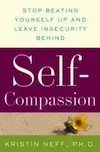Last week, we at Greater Good explored the impact of stress and the power of self-compassion through our Science of a Meaningful Life speaker series.
On the website, we shared an entertaining, abridged transcription and a series of video clips from a talk on stress by best-selling author and Stanford professor Robert M. Sapolsky. And in the physical realm, we held an event in Berkeley with University of Texas psychologist Kristin Neff on self-compassion.
It’s helpful to consider the two thinkers in tandem with each other.
Sapolsky—whom I’ve seen described variously as a neuroendrocologist, a neurologist, a primatologist, a best-selling author, and a scientific stand-up comedian—is not exactly a self-help guru. In fact, I’d describe his perspective as amusingly dystopian, as you can see in this three-minute video clip that introduces his basic conception of human stress.
Sapolsky’s research on chronic stress—the bane of contemporary life and the source of many mental and physical illnesses—is incredibly valuable. If you watch his full talk (which our dues-paying members can do), you’ll discover a lot about your own body and what you can do to mitigate the damage inflicted by chronic stress.
The bottom line: Have hobbies and healthy outlets for your frustrations; accept the things you cannot change and change the things you can; try to get predictive information (but not too much!); get a shoulder to cry on; and, most of all, cultivate healthy relationships with family, friends, and neighbors. (There are some interesting nuances to these prescriptions, which is why the whole essay, “How to Relieve Stress,” is worth a read.)
But Sapolsky doesn’t have much to say about your relationship with yourself. In the original, unabridged transcript of the presentation he gave at our Science of a Meaningful Life event, here is how he ended his talk: “The more and more we consume, the hungrier we get. Okay, on that note, incredibly cheery note, I will stop here. So, on that note, good luck with your stressors and good luck with having dopamine surges for, uh, good reasons.”
Inspiring, huh?
For inspiration—and an antidote to stress that Sapolsky doesn’t mention—you have to turn to a scientist like Kristin Neff, who came to UC Berkeley on Friday to talk with us about self-compassion.
Her basic idea is that when you are hurting, you should extend the same compassion to yourself that you would give to anyone you love. This sounds simple, but many people (including me, I’m afraid) find it extremely difficult to apply to their own lives—and, as Neff’s research makes clear, it’s easy for even the most balanced, enlightened people to miss opportunities to be kind to themselves.
Many kind, caring people, for example, use ferocious self-criticism as a way of keeping themselves motivated, deploying language against themselves that they’d never say aloud to another person. This reduces our ability to cope with difficult situations, and triggers a thumping heart and spikes in the stress hormone cortisol.
What if you just tried being gentle with yourself? As Neff writes in her book, Self-Compassion, one study found that “the more self-compassionate versus self-critical that people were, the lower their cortisol levels and the higher their heart rate variability” when faced with stressful situations—in other words, the calmer they were.
It’s also fascinating to hear how compassion to ourselves leads us to be more kind and forgiving to others. In an interview with Greater Good’s Jason Marsh, Neff describes the second of three components of self-compassion:
The second part is remembering that imperfection is part of the shared human experience—that you’re not alone in your suffering. Often, when something goes wrong, we look in the mirror and don’t like what we see—we feel very isolated in that moment, as if everyone else has these perfect lives and it’s just us who’s flawed and defective. When we remember that imperfection is part of the shared human experience, you can actually feel more connected to people in those moments.
This knowledge of imperfection leads us to better recognize suffering in others and forgive them for their all-too-human trespasses—which other research has shown reduces the stress in our lives. It’s a powerful concept described much more elaborately in Neff’s essay for Greater Good, “Why Self-Compassion Trumps Self-Esteem,” which is the most popular piece we’ve ever published. I hope you’ll check it out, and try to apply her ideas to your own life.







Comments
Having listened to the podcast, I have no conclusion as to whether Self-Compassion is the “solution” to overstress. However, it certainly sounds like an extremely valuable tool and I look forward to more information about the impact of self-compassion practices and more information on self-compassion practices. So thanks much
Joel Rubin | 5:34 pm, March 31, 2012 | Link